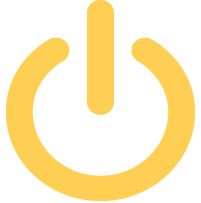Action Overview: Educator Beliefs
Action: Examine beliefs of educators across the organization
This set of resources is designed to help educators examine their beliefs about student learning and how those beliefs affect their interactions with students.
Introduction
What is the impact of educator beliefs?
The attitudes and beliefs of educators explicitly and implicitly affect their interactions with students, and influence their students’ beliefs about themselves and their abilities to learn. We know that “Teachers want students to learn, and many make an effort to be particularly responsive to racially and ethnically diverse students” (Hawley). However, because of the complexity of individual experiences, biases, and perceptions, positive intentions do not ensure positive outcomes for students. Sometimes we are not aware of unintended outcomes or impacts of beliefs that we hold: “Many of the beliefs we hold and lessons we are taught about racially and ethnically diverse students and how best to facilitate their learning have positive effects. Others, however, while seemingly sensible and well-intended, can have negative consequences” (Hawley). “without addressing the underlying deficit beliefs influencing educators’ behavior, providing “high-quality” or “research-based” professional development does little to change practice...” (Guerra, 2009).
Why is it important to examine educator beliefs?
Educator beliefs should be examined in order to:
· form a school culture in which discussions of culture are accepted and expected
· form a common vision and philosophy for education.
· understand how educator attitudes and actions toward individual learners and groups of learners and help educators identify whether some learners are advantaged or disadvantaged by instructional practices and policies.
· align curriculum and instruction to ensure that students’ education leads to equitable career, college and daily life readiness.
· inform course offerings and development.
· identify needs for professional development to increase educators’ knowledge, skills, and efficacy to address the shifts.
· inform teachers’ perceptions of their own success and value.
· inform interventions and approaches to differentiated instruction.
How will understanding current educator beliefs benefit the development of a standards-based education system?
The activities in this action will have educators examine their beliefs by responding to a survey in which they provide responses to common education situations and then that information is collected anonymously. By reflecting on the responses, the participants may challenge and possibly change their beliefs in ways that are more supportive of equitable learning. Also, having a shared understanding of the beliefs of colleagues may enhance the effectiveness of collaborative work in developing a standards-based system. The products of the analysis of the beliefs survey will be utilized in the culminating action of this strategy, the development of a vision for instruction and curriculum.
Suggested Activity
How do educators use portal resources to develop shared understanding of current educator belief?
1. If you have not completed the Activity Directions: The Danger of a Single Story, participate in that activity.
2. Activity Directions: Examine educator beliefs. The portal provides an activity to help plan and conduct an examination of educator beliefs.
References
Guerra, P.L., & Nelson, S.W. (2009). Changing professional practice requires changing beliefs, Phi Delta Kappan, 90(5), 354-359.
Hawley, W., Jordan Irvine, J., & Landa, M. (n.d.). Common beliefs survey: teaching racially and ethnically diverse students. In Teaching Tolerance. Retrieved from https://www.tolerance.org/professional-development/common-beliefs-survey-teaching-racially-and-ethnically-diverse-students.






